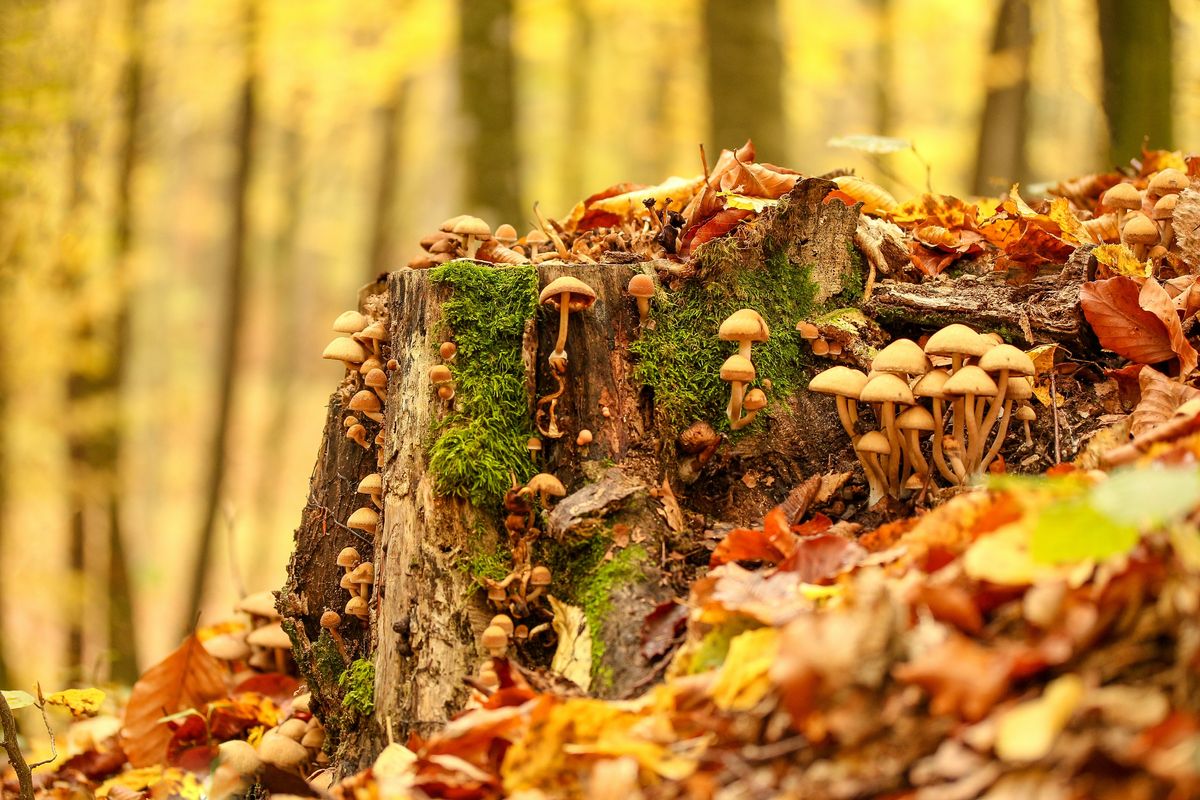Could fungi help us fight climate change?
Fungi often grow through soil and communicate with one another through underground networks that make up a third of the living biomass of soil.

A few minutes every morning is all you need.
Stay up to date on the world's Headlines and Human Stories. It's fun, it's factual, it's fluff-free.
Mushrooms aren’t just the best pizza topping. Apparently, they might be able to help solve the climate crisis via “fungal webs.”
Fungi often grow through soil and communicate with one another through underground networks that make up a third of the living biomass of soil. Picture these networks, these fungal webs, almost like plant roots that run underground, binding it together and nourishing life on Earth. And it turns out that they can actually capture and store carbon emissions from the atmosphere with the help of plants. Yeah, the same carbon emissions that are a major contributor to climate change.
Recently, researchers did a study showing that each year, plants bring in 13.12 gigatons of carbon dioxide equivalents (CO2e) from the atmosphere, transferring it to mycorrhizal fungi, which burrows itself in soil. That’s about 36% of annual global fossil fuel emissions. That carbon is then stored in those fungal webs. We’re still not sure how long it’s stored for, though.
Scientists were already aware of this relationship between plants and fungi. But, “this is the first time someone has come up with numbers for how much carbon we’re talking about globally,” says Melanie Jones from the University of British Columbia.
Talking on mycorrhizal fungi, the study’s co-author Professor Katie Field of the University of Sheffield, said, “We don’t have any off-the-shelf solutions just yet but I think what our numbers show is that there is untapped potential there. They’re unlike any other organisms on Earth and they’ve been overlooked for almost the entirety of biological study. We’ve only just scratched the surface in how important they might be in terms of environmental function.”
Unfortunately, we’re going through a time when topsoil is degrading pretty quickly and expansively. Deforestation and industrial agriculture are hurting these fungal systems with practices like tilling and chemical fertilizer and pesticide overuse. Other climate events, like extreme heat and drought, are also causing problems. According to the UN, over 90% of Earth’s soil will be degraded by 2050. By moving toward regenerative agriculture practices, we can help protect soil and the fungal networks within it. And, of course, pizza. Do it for the pizza.




Comments ()